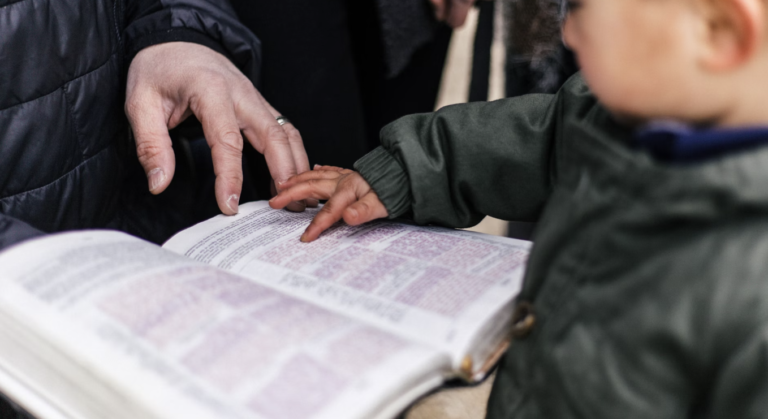
Photo by Karolina Grabowska on Pexels
Looking for the perfect educational environment for your child? Montessori schools have gained popularity for their unique approach to learning. But before you enroll your child, it’s important to consider the cost. In this article, we’ll explore the factors that influence the cost of Montessori schools, helping you make an informed decision about your child’s education. From tuition fees to additional expenses, we’ll break down the costs associated with Montessori education. So, let’s dive in and find out how much Montessori schools really cost.
When it comes to Montessori education, the cost can vary depending on several factors. Tuition fees are the primary expense to consider. However, it’s important to note that Montessori schools often offer different programs, such as half-day or full-day options, which can impact the overall cost. Additionally, some Montessori schools may charge additional fees for materials, field trips, or extracurricular activities. By understanding the different cost components, you’ll be able to determine the financial commitment involved in choosing a Montessori education for your child.
Key Takeaways
- The cost of Montessori schools can vary depending on factors such as location, school reputation, class size, facilities and resources, and additional fees.
- Location plays a significant role in determining tuition fees, with urban areas generally having higher costs compared to rural areas.
- Montessori schools with a strong reputation for high-quality education may charge higher tuition fees.
- Smaller class sizes and well-equipped facilities can contribute to higher tuition fees.
- Additional fees for materials, field trips, and extracurricular activities should be considered when calculating the overall cost of Montessori education.
- It’s important to research and compare schools to find one that aligns with your child’s needs and your financial situation.
Factors that influence the cost of Montessori schools
When considering the cost of Montessori schools, you need to take into account several factors that can influence the overall price. These factors can vary from school to school, so it’s important to do your research and understand what you’re paying for. Here are a few key factors that can influence the cost of Montessori education:
1. Location: The location of a Montessori school can have a significant impact on its tuition fees. Schools in urban areas or affluent neighborhoods often charge higher fees due to the higher cost of living and property values. On the other hand, schools in rural or less expensive areas may have lower fees.
2. School Reputation: Montessori schools with a strong reputation for providing high-quality education and individualized instruction may charge higher tuition fees. These schools often have experienced and well-trained teachers, updated learning materials, and a commitment to maintaining a positive learning environment.
3. Class Size: The student-to-teacher ratio is an important factor in determining the cost of Montessori education. Smaller class sizes allow for more individualized attention and personalized instruction, which can result in higher tuition fees.
4. Facilities and Resources: The facilities and resources available at a Montessori school can also impact the cost. Schools with state-of-the-art facilities, well-equipped classrooms, and a wide range of educational materials may charge higher fees to cover the costs of maintenance and upgrades.
5. Additional Fees and Programs: Apart from tuition fees, some Montessori schools may have additional fees for materials, field trips, extracurricular activities, or specialized programs. These fees can add to the overall cost of your child’s Montessori education, so it’s important to inquire about them when researching potential schools.
It’s important to note that while Montessori education can be more expensive compared to traditional schooling, many parents believe that the benefits, such as fostering independence, creativity, and critical thinking skills, outweigh the cost. So, when considering the cost of Montessori schools, it’s vital to weigh the educational value and long-term benefits your child may gain from this unique learning approach.
Tuition fees as the primary expense
When considering the cost of Montessori schools, tuition fees are typically the primary expense to consider. These fees cover the basic cost of education and are usually paid on a monthly or yearly basis. The specific amount you can expect to pay will vary depending on several factors, which we will discuss in this article.
Montessori schools often have a higher tuition compared to traditional schools due to their unique educational approach and specialized teaching methods. The tuition fees reflect the quality of education and the resources provided by the school. It’s important to note that Montessori schools are privately funded and do not receive government subsidies, which can contribute to the higher cost.
The amount of tuition fees can vary significantly depending on the location of the school. Montessori schools in urban areas may have higher tuition fees compared to those in suburban or rural areas. This is often due to the higher cost of living and operating expenses associated with urban areas. Additionally, prestigious Montessori schools with a well-established reputation may also charge higher tuition fees.
Another factor that can affect the cost of tuition is the class size. Montessori schools typically emphasize individualized instruction and smaller class sizes to provide more individual attention to each student. However, this can result in higher tuition fees, as the school needs to maintain a lower student-to-teacher ratio.
It’s also important to consider the facilities and resources provided by the Montessori school. Schools with state-of-the-art facilities, well-equipped classrooms, and a wide range of educational materials may have higher tuition fees. These resources contribute to creating an engaging and enriching learning environment for students.
While tuition fees are the primary expense to consider, it’s essential to keep in mind that there may be additional fees for materials, field trips, or extracurricular activities. These fees can vary from school to school, so it’s important to inquire about them during your research phase.
As you explore your options for a Montessori education for your child, make sure to consider the tuition fees and the factors that influence them. By understanding these factors, you can make an informed decision about the financial commitment involved in choosing a Montessori education for your child. Remember, the benefits of a Montessori education often outweigh the cost for many parents.
Different programs offered by Montessori schools
Montessori schools offer a variety of programs tailored to meet the needs of different age groups. The programs typically include:
- Infant/Toddler Program: This program is designed for children from birth to around three years old. It focuses on the development of language skills, fine and gross motor skills, and social interaction through activities such as sensory exploration, practical life exercises, and outdoor play.
- Preschool/Pre-Primary Program: This program caters to children aged three to six years old. It aims to cultivate independence, self-discipline, and a love for learning. Children engage in a wide range of activities that promote language acquisition, math skills, sensorial exploration, practical life skills, and cultural studies. The curriculum is centered around the use of Montessori materials and hands-on learning experiences.
- Elementary Program: Montessori elementary programs usually serve children from six to twelve years old. This program expands on the foundation built during the preschool years and emphasizes critical thinking, research skills, and interdisciplinary learning. Children engage in hands-on projects, group discussions, and receive individualized lessons in subjects such as mathematics, language arts, science, history, and geography.
- Middle School/Adolescent Program: Some Montessori schools offer programs for middle school-aged children, typically ranging from twelve to fifteen years old. This program provides an environment that supports the unique developmental needs of adolescents. Students explore academics through interdisciplinary studies, real-world projects, community service, and career exploration.
It’s important to note that the availability of these programs can vary from school to school. Some Montessori schools may only offer programs for specific age groups, while others may offer a full continuum of Montessori education from infancy through adolescence. When considering a Montessori education for your child, research the programs available at different schools to find one that aligns with your child’s age and developmental needs.
Additional fees for materials, field trips, and extracurricular activities
Montessori schools not only charge tuition fees but may also have additional fees for materials, field trips, and extracurricular activities. It’s important to consider these fees when planning for your child’s education.
Materials Fees: Montessori education is known for its hands-on learning approach, which often requires specific materials unique to this method. These materials can include various learning tools, manipulatives, and equipment that aid in the child’s exploration and understanding of concepts. Schools may charge a materials fee to cover the cost of providing these educational resources.
Field Trip Fees: Montessori schools often organize field trips as part of their curriculum to provide students with real-world experiences and enrich their learning. These outings can be educational and fun, allowing children to explore various subjects beyond the classroom. However, keep in mind that these field trips may come with additional fees to cover transportation, admission tickets, and other expenses.
Extracurricular Activity Fees: Montessori schools often offer a range of extracurricular activities to enhance the holistic development of children. These activities can include sports, arts, music, language lessons, or even specialized programs such as gardening or mindfulness. While these activities can provide valuable opportunities for your child, they may come with separate fees.
It’s important to note that the amount of these additional fees can vary from one Montessori school to another. Some schools may include these fees within their tuition structure, while others may charge them separately. It’s crucial to inquire about these fees during your research process to have a comprehensive understanding of the overall cost of attending a specific Montessori school.
By considering both the tuition fees and these additional fees, you’ll be able to make an informed decision regarding your child’s Montessori education. Keep in mind that while the cost may be higher compared to traditional schooling, many parents believe that the benefits of a Montessori education far outweigh the expenses.
Continue your research to find the Montessori school that aligns with your child’s age, developmental needs, and your financial situation.
Determining the financial commitment involved in choosing a Montessori education
When considering a Montessori education for your child, it’s important to have a clear understanding of the financial commitment involved. While the benefits of Montessori education are widely recognized, it’s crucial to be aware of the costs associated with it.
Tuition Fees:
Tuition fees are the primary expense to consider when calculating the cost of a Montessori education. These fees can vary significantly depending on the location, reputation, and resources of the school. It’s recommended to conduct thorough research to find a school that aligns with your budget and offers the desired quality of education.
Additional Fees:
In addition to tuition fees, Montessori schools may have additional charges for materials, field trips, and extracurricular activities. These fees cover the cost of providing educational resources, organizing enriching field trips, and offering extracurricular opportunities, such as music lessons or sports programs.
The amount of these additional fees can vary between schools, so it’s essential to inquire about them during the research process. By understanding the overall cost, including both tuition and additional fees, you can accurately assess the financial commitment involved in choosing a particular Montessori school.
Financial Aid:
It’s worth noting that some Montessori schools offer financial aid programs to assist families with limited financial resources. These programs aim to make Montessori education more accessible by providing assistance in covering tuition fees. If you believe your family may qualify for financial aid, it’s recommended to inquire about these programs while researching different schools.
Investing in your child’s education is a significant decision, and understanding the financial commitment involved is crucial for effective planning. By considering the tuition fees, additional charges, and potential financial aid options, you can make an informed decision that aligns with both your child’s needs and your budget.
Keep in mind that while Montessori education may have higher costs compared to traditional schooling, many parents believe that the benefits it offers, such as individualized learning, hands-on experiences, and emphasis on holistic development, outweigh the financial investment.
Conclusion
Understanding the financial commitment involved in choosing a Montessori education is crucial for parents. Factors such as tuition fees, additional fees, and potential financial aid options all play a role in determining the cost of Montessori schools. By conducting thorough research, parents can find a school that aligns with their budget and offers the desired quality of education.
While Montessori education may be more expensive compared to traditional schooling, many parents believe that the benefits outweigh the cost. The individualized learning approach, focus on independence and self-discipline, and emphasis on hands-on learning are some of the reasons why parents choose Montessori schools for their children.
It is important to note that some Montessori schools offer financial aid programs to assist families with limited financial resources. This can make Montessori education more accessible and affordable for those who may not have considered it otherwise.
Understanding the financial commitment involved in choosing a Montessori education allows parents to make an informed decision that aligns with both the child’s needs and the family’s budget. Montessori education can be a valuable investment in a child’s future.
Frequently Asked Questions
Q: What factors contribute to the cost of Montessori schools?
A: The cost of Montessori schools is influenced by various factors, including tuition fees, additional fees for materials, field trips, and extracurricular activities.
Q: Are Montessori schools more expensive than traditional schools?
A: Montessori education can be more expensive compared to traditional schooling due to its specialized approach. However, many parents believe that the benefits of Montessori education outweigh the cost.
Q: How can parents determine the financial commitment of a Montessori education?
A: Parents should research and understand the financial commitment involved in choosing a Montessori education. This includes considering tuition fees, additional fees, and potential financial aid options.
Q: Are there financial aid programs available for Montessori schools?
A: Some Montessori schools offer financial aid programs to assist families with limited financial resources. It’s important to research and inquire about financial aid options when considering a Montessori education.
Q: What should parents consider when choosing a Montessori school?
A: When choosing a Montessori school, parents should consider the school’s quality of education, alignment with their budget, and any additional fees. Thorough research is essential to find a school that meets both the child’s needs and the family’s financial situation.





